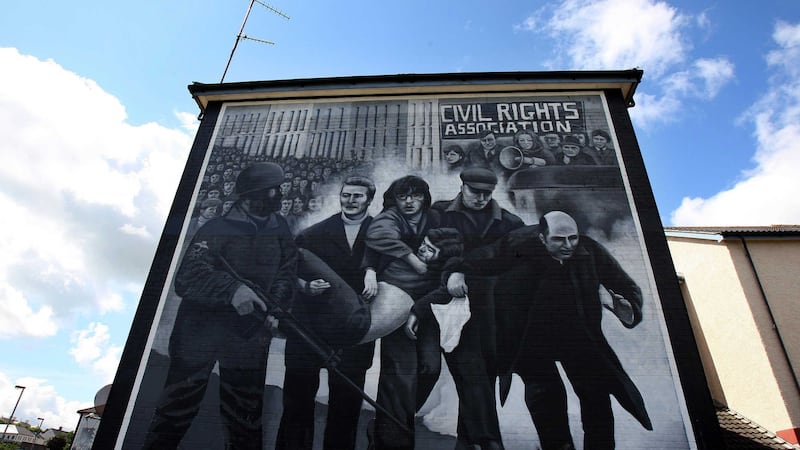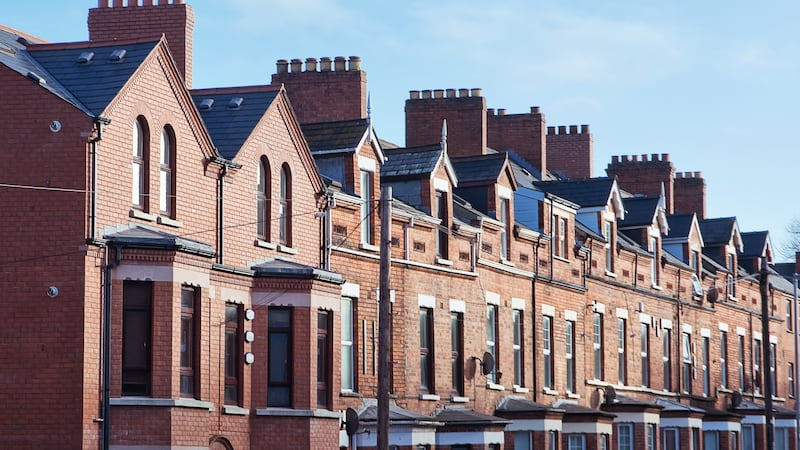"NED was a very good priest, very popular, cared for the people, went on civil rights marches – but he wasn’t being groomed for anything.
When a wide assortment of people (including Bishop Edward Daly) talked to me in 1992 for a book on changing northern Catholic identity, a slightly younger ex-priest, another Derryman, praised his steep promotion after Bloody Sunday: "That was a very clever move the Church made.'"
Bishop Daly never lost his feel for Derry nor his closeness to people. When he said Catholics should give information to the RUC, the slogan ‘JUDAS DALY’ with the phone number of the bishop’s house appeared on a Bogside wall. It was washed off within hours.
Nor did he lose his openness to journalists, though he had retired before the full spate of revelations about abuse.
Earlier, answering his own phone was a winning habit, like his articulacy.
He gave me the most telling account any cleric managed of what the Troubles meant to many other priests; in the case of paramilitary funerals a public and visible challenge of their own ideas about politics, brought into sharp focus by Church requirements.
He said: "When there are several television crews jockeying for position, a packed church and people distraught with grief and anger and a degree of uncertainty about what precisely happened or who did it or why, or whether the deceased was actually a member of an organisation or not — it is very difficult.
"It can be daunting and sometimes frightening for the priest. He has to cope with huge crowds, an intimidating army and police presence, he may have had to spend the previous two days and nights with the family helping them to cope with the sudden grief, he will have been under pressure from police, army, paramilitary organisations about the route of the funeral, he will have been hounded by the media for quotes and the text of a homily.
"He may well have to jot that down at half seven in the morning after being up all night and then those words will be parsed and analysed for all kinds of hidden and subtle meaning.
"Then in a crowded church under television lights he has to follow a set of guidelines from the bishop about flags and emblems in the church and grounds - in front of a highly emotional and often angry congregation - and every move he makes is monitored.
"He is very conscious that he will have to minister and live in that parish tomorrow and the next day and the months ahead after all these others leave.
"And very few of the people present can be expected to have the courage to take his side in a public manner if and when he is challenged in these circumstances.
"He is on his own and knows he is on his own. I have enormous admiration for the manner in which so many priests have conducted themselves in these very different pastoral situations."
Unusually for a senior churchman, he admitted mistakes and his own emotions.
"I have said a few things I regretted, usually in the immediate aftermath of some atrocity when a journalist stuck a microphone in front of me at a time when I was very upset emotionally.
"At one stage early on I described somebody as Satan which I should not have done.''
There was little pompousness in him, sense of fun glinting past serious subjects.
He thought remnants of an ‘identity kit’ still survived. A priest friend had joked not long before that as a soccer follower he wasn’t "a real Irish person" – Celtic nationalism, the Catholic faith, GAA, Irish music, Irish language, that’s the full package to some. I hope we’re moving towards a greater acceptance of difference.''
Some noted that the other, chillier Daly, Cardinal Cahal, had written and preached about the merits of ecumenism while Eddie Daly made a warm and lasting friendship with his Church of Ireland opposite number Dr James Mehaffey.








